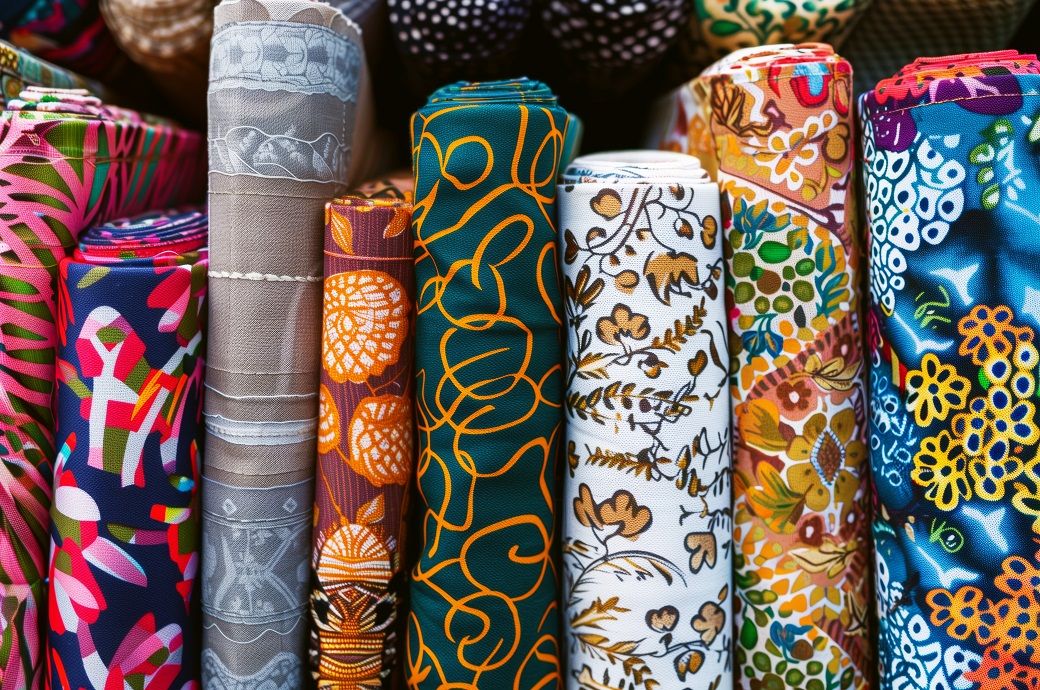
Sidharth Khanna, President of the Northern India Textile Mills’ Association (NITMA), has submitted a memorandum to Commerce and Industry Minister Piyush Goyal, demanding a permanent solution to the problem. He suggested imposing a minimum import price of $3.5 per kg on all HS codes under Chapter 60. The chapter covers knitted synthetic fabric under several dozen codes. He stated that the government should include a provision in the upcoming Union Budget to save the industry.
The Indian textile industry urges measures to curb cheaper fabric imports, mainly from China, citing HS code manipulations to evade the $3.5/kg MIP on Chapter 60 fabrics.
NITMA and trade bodies demand stricter controls and higher customs duties, while woven fabric imports have surged, especially from Thailand.
Industry leaders stress fair competition and policy reforms in Budget 2025.
NITMA stated that importers are exploiting other HS codes that do not attract MIP to import cheaper fabric. The industry body has presented the latest trade data to support its allegations. It reported that average monthly fabric imports under HS codes 60011020, 60062300, and 60064300 increased by 600 percent to 7.52 million kg in October 2024. These codes do not attract the MIP of $3.5 per kg, and their average clearing price ranged between $1.14 and $1.53 per kg, while the actual import price may vary between $4 and $6 per kg. This is a clear indication of significant manipulation and under-invoicing in imports.
Sanjay Garg, Former President of NITMA, told Fibre2Fashion, “The Indian industry is not scared of global competition, but it should be fair. We just need to stop illegal activities in fabric imports so the industry can compete in a healthy environment. The government should take effective steps in the coming budget.”
Raj Kumar Agrawal, President of the Mumbai-based trade body All India Knitters Association, is consistently raising the matter before the government. He told F2F, “Chinese companies are dumping fabric at unrealistically low prices not only from mainland China but also from other neighbouring countries. Chinese exporters are exploiting benefits given to neighbouring countries like Thailand, Indonesia, and Malaysia by India under various trade agreements, including the India-ASEAN trade agreement.”
Agrawal said that the government imposed MIP in March 2024 after representations from the industry. It also extended the period of MIP and expanded it to cover more codes. However, the government is reluctant to impose MIP on the entire Chapter 60. As a result, importers have sufficient options to use other codes to divert their inbound shipments, thereby evading the MIP.
Woven fabric imports are also on the rise despite stricter provisions. It is to be noted that woven fabric attracts 20 per cent import basic customs duty (BCD). There is also a provision of 20 per cent duty or the import duty applicable on specific codes of woven fabric, whichever is higher. BCD is applied on the value of the import, but certain codes of woven fabric also attract duty in an absolute amount per square meter, i.e., ₹150 per square meter.
According to trade data, woven fabric imports increased by 235 per cent to 4,621 million square meters in January–September 2024, especially textured base fabric imports jumped to 3,191 million square meters in the first six months of the current fiscal, compared to 219 million square meters in the same period of the previous fiscal. Industry sources stated that 94 per cent of the textured base fabric was imported from Thailand. Earlier, its imports had surged by just 7 per cent to 3,205 million square meters in 2023–24.
Ashish Gujarati, former president of the Southern Gujarat Chamber of Commerce & Industry (SGCCI), said, “The government should find a permanent solution, as the Indian industry is losing opportunities for value addition in the textile sector. The country is also losing revenue and potential jobs for its citizens. It is high time to increase the basic customs duty (BCD) from 5 per cent to 20 per cent on knitting fabric, with the provision of duty on specific codes based on weight.” He also suggested not restricting fibre imports through Quality Control Orders (QCO) but ensuring the availability of raw materials at globally competitive prices. The domestic industry is capable enough to compete with imported fabric supplies.
Fibre2Fashion News Desk (KUL)





